How Does Our Sense of Humor Change With Age? A Statistical AnalysisHow do our comedic sensibilities form and transform over time?Intro: Have I Lost My Sense of Humor?When I was eleven, my favorite film was Scary Movie 3. For those who don't know, Scary Movie 3 is a screwball comedy that parodies popular horror films from the 2000s, including Signs and The Ring. This film was the third installment of the wildly popular Scary Movie series, the most visible franchise in a subgenre of "spoof films" that includes entries like Meet the Spartans, Disaster Movie, Epic Movie, and an onslaught of projects that were decidedly low-brow, cheap-to-produce, and packed with nonsensical gags. Spoof films thrived in the 2000s, with Scary Movie 3 grossing over $220M despite a Rotten Tomatoes score of 35%. I was a pre-teen when I first saw this giddy spoof-fest and thought little of the film's cinematic prowess or whether it would qualify for the Criterion Collection—I simply loved Scary Movie 3. I would watch this movie monthly, hosting showings for friends and even making it the focal point of a birthday celebration. A few months ago I tried to rewatch Scary Movie 3, and, oh boy, did it not age well. Within 30 minutes of starting the movie, I arrived at a most unfortunate conclusion: I did not find this funny at all. How could a film so core to my pre-teen identity feel so foreign? Had I lost my sense of humor, or had my sense of humor simply transformed with age? Am I the norm, or am I an outlier? Fortunately, a large body of academic research examines the intersection of humor, aging, and cultural mores. So today, we'll explore how our sense of humor forms and transforms with age, and the physiological factors driving our comedic sensibilities. How Does Our Sense of Humor Change Over Time?We are born humorless little poop machines. We can't make funny voices, we can't do bits, and we can't engage in wordplay—we simply eat, sleep, poop, cry, and poop again. And then, amidst this onslaught of poop, a sense of humor begins to emerge. The Early Humor Survey (EHS) is a standardized questionnaire designed to assess a child’s humor-processing abilities in the first four years of life. EHS survey data (which is collected from parents) reveals that our sense of humor begins emerging in infancy, typically around the four-month mark. During this period, babies respond to simple stimuli with laughter and begin producing humor.
Even more striking is how humor development differs by task, as comprehension and appreciation of nonsense, puns, and trickery are all learned at varying rates.
Once we exit adolescence, comedic interactions begin to wane, and we laugh less often. A 2013 Gallup survey documenting the frequency of humorous interactions suggests the existence of a "humor cliff" as we age—each year, we laugh a little less than the previous one. Humor fades until we're 80, at which point we chuckle a bit more (what a relief).
While captivating, this visualization is also misleading. Popular interpretations of this data suggest that as people mature, their appreciation for humor declines, as if this trait were a single stock trending up or down. Instead, a person's comedic sensibilities are defined by an assortment of preferences that remain fluid throughout our lives. A substantial body of research examines how comedic taste varies with age, exploring our reactions to different humor styles at various life stages. One such study published in Current Psychology presented respondents with a series of humorous statements and then assessed each subject's affinity for four distinct joke types:
Ultimately, the study found that with age, people appreciate self-enhancing humor more, and they value affiliative, self-defeating, and aggressive stylings less. A similar study of 4,200 German participants found that we increasingly prefer incongruity resolution as we age, an approach marked by unexpected or contradictory elements that lead to a comedic surprise. In joke format, this genre includes a setup pointing toward one outcome, with a punchline that delivers a surprising twist, such as "I just flew in today, and boy, are my arms tired!" This research indicates that as individuals age, their increasing appreciation for incongruity resolution is coupled with a diminished enjoyment of nonsensical humor. Perhaps this explains my newfound distaste for Scary Movie 3, a film that could best be described as "84 minutes of comedy nonsense." I guess silliness for silliness-sake is less appealing to 30-something me. Social norms also play a role in our ever-changing relationship with humor, as generational gaps in what is deemed "appropriate" heavily inform our interpretations of comedy. To better understand the interaction of cultural mores and humor processing, researchers from Akron and Northeastern University asked participants to watch a series of comedic film and television clips and score scenes based on their appropriateness and humor. All age groups found the so-called "appropriate" clips equally funny, while older adults were less amused by clips deemed "inappropriate." Conceptually speaking, one's assessment of appropriateness is relative, especially when it comes to humor. Humor does not age like fine wine, as comedy often suffers from a generational mismatch in social standards—a fact that makes the internet (significantly) less pleasant. Senses of humor—both individually and generationally—are complex and ever-shifting. Throughout our lives, we laugh a little less and gravitate toward humor that is "appropriate," self-enhancing, and marked by incongruity resolution; in the process, we forsake other comedic stylings. But what propels this shift in taste—what causes this core part of our personality to change? Is evolving comedic preference the product of nature or nurture? Enjoying the article thus far and want more data-centric pop culture content?Why Does Our Sense of Humor Change?A few months ago, I wrote about how and when our taste in music crystallizes. According to various analyses of Spotify data, musical discovery peaks at 24 and largely stagnates in our early 30s. The music of your childhood may be your go-to music for the rest of your life. As I began researching humor maturation, I was curious how these findings would compare: Does our sense of humor follow a similar trajectory, peaking in early adulthood and declining from that point forward? In short, no. Most research finds that our ability to appreciate and comprehend comedy begins to falter later in life, around age 60. What's notable about this insight is that our preference for humor doesn't diminish, but our ability to understand and process comedy does. A widely cited study by researchers from Ruhr University and University College London assessed late-in-life humor comprehension by testing participants' joke completion abilities in tandem with executive function. Older participants chose fewer correct punchlines than other age groups, and their selections proved less successful, resulting in lower funniness scores. In a similar study, Polish researchers collected data on humor appreciation, health, education, employment, and age across 109 older adults to quantify the cognitive determinants of comedy comprehension. Their analysis suggests that cognitive functioning and secondary education are the most significant predictors of late-in-life humor appreciation. In response to these findings, scientists have sought to identify the biological phenomena affecting our comedic capacities. Numerous studies suggest that the psychological processes underlying humor appreciation are concentrated in our right frontal lobe. One analysis found that those with damage to this particular brain region exhibit diminished physical or emotional responses to comedy (laughter, smiling, etc.) and struggle with joke completion. In cases of "normal" aging (when someone has not suffered a traumatic brain injury), gradual changes to the right frontal lobe likely impair comedic abilities, leading to difficulties processing and enjoying humor. These findings could be classified as "not uplifting": old age rids us of life's pleasures, and laughter is no exception to this decay. We are forever downward sliding on a humor cliff, driven by physiological phenomena we cannot control. However, there is some good news. Several studies have shown that with dedicated training, older adults can improve and retain their sense of humor. Most people will not take a course on cultivating comedic sensibilities, which is fine because they may not have to. There's a high likelihood that regular social stimulation can elicit similar outcomes. We're not condemned to a fate devoid of humor, right frontal lobe be damned. Final Thoughts: Everybody Wants to LaughWhen I was 14, my favorite movie was Superbad. I loved this film so much that I saw it three times while it was in theaters. Because of stupid MPAA rules, I couldn't see R-rated movies without an adult, so I begged my father to chaperone my second viewing. As I sat down next to my dad, preparing for another laugh riot, I was struck by a terrible realization: I would be sitting next to my father during Superbad's infamous penis-drawing sequence. For those who don't know, there is a 3-minute scene in Superbad that details a character's obsession with drawing penises. I, a young teenager, would have to watch these phalluses flash across the screen while sitting next to the central authority figure in my life. It was at this point that I had a minor panic attack. Would we acknowledge that we saw this together? Would he be infuriated by this crass montage? Would he judge his son for loving this movie so dearly? I had made a terrible miscalculation. When the scene finally came, the entire theater erupted with laughter, and the person laughing loudest of all was my dad. I was in shock: How was this possible? I always assumed that there was adult humor and child humor and that never the twain shall meet. Weirder still, I had never seen my dad laugh so hard during a movie. After a few seconds of confusion, I decided to stop overthinking things and simply laugh along—father and son laughing at a stylish montage of phalluses. In hindsight, I had underestimated my father's ability to find things funny and his desire for laughter. For some reason, I always thought adults didn't want to laugh as much as children. I assumed that as we aged, our need for humor was replaced by reading The New York Times, eating charcuterie, perusing Wirecutter articles, complaining about the price of gas, and watching The Sopranos. Well, I was wrong. Everybody wants to laugh—even grown-ups. A few months ago, I was in a beachy knickknacks store when I saw a pillow that read, "Laugh each day like it's your last." I snickered at this furnishing and thought, "Stupid pillow." I didn't need to get life lessons from a pillow—I'm better than that. Pillows are made for back support and to be sat on, not to dispense wisdom. Yet, as I reviewed the research on humor development and the biological realities underpinning its decline, I couldn't help but think that this pillow might have a point. Each year, we laugh a little less, but our desire for comedy remains the same. Our brains change, cultural norms change, and our social situations change, but we're still human—we still want to laugh (perhaps at a three-minute montage of penis drawings). We are born humorless little poop machines, but we're not condemned to live and die as humorless little poop machines. Maybe we should put that on a pillow. Want to chat about data and statistics? Have an interesting data project? Just want to say hi? Email daniel@statsignificant.com
|
Search thousands of free JavaScript snippets that you can quickly copy and paste into your web pages. Get free JavaScript tutorials, references, code, menus, calendars, popup windows, games, and much more.
How Does Our Sense of Humor Change With Age? A Statistical Analysis
Subscribe to:
Post Comments (Atom)
I Quit AeroMedLab
Watch now (2 mins) | Today is my last day at AeroMedLab ͏ ͏ ͏ ͏ ͏ ͏ ͏ ͏ ͏ ͏ ͏ ͏ ...
-
code.gs // 1. Enter sheet name where data is to be written below var SHEET_NAME = "Sheet1" ; // 2. Run > setup // // 3....

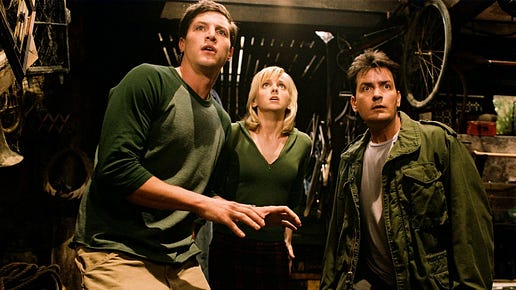
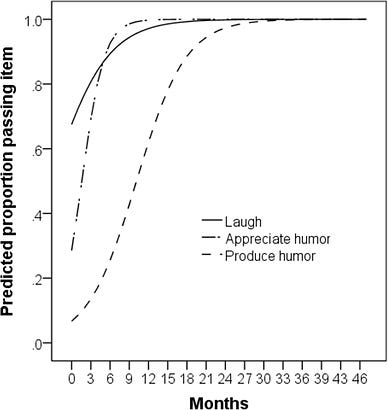
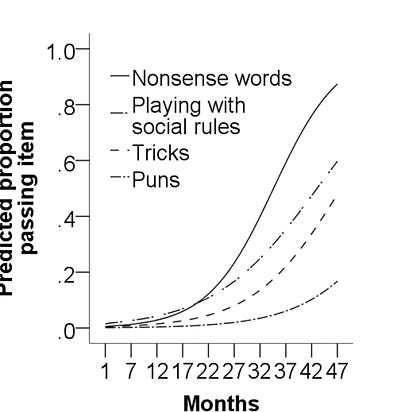
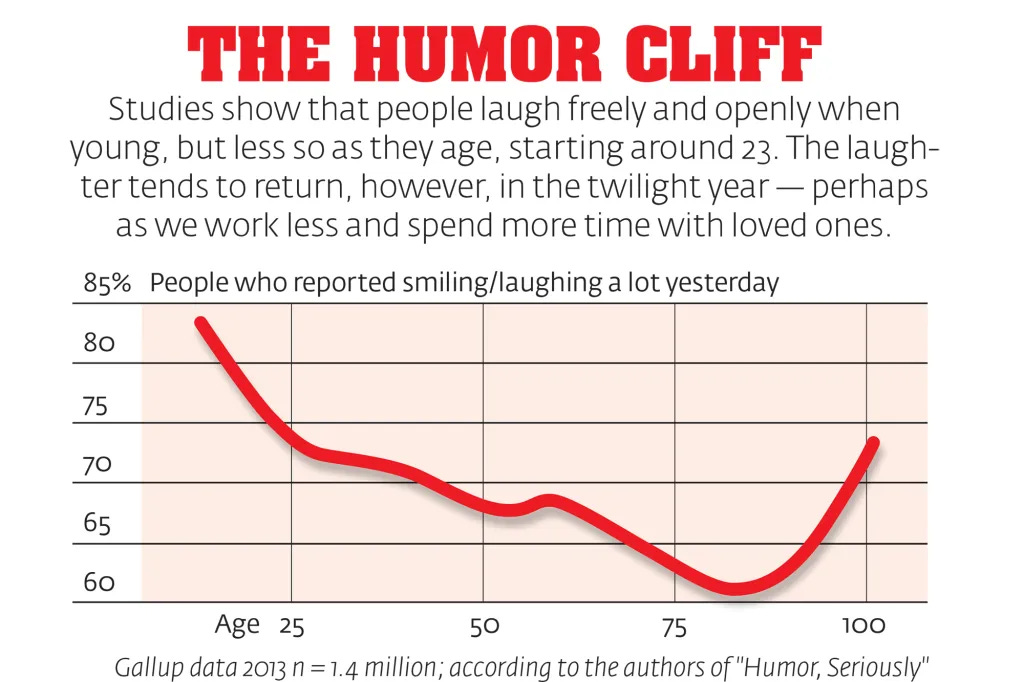
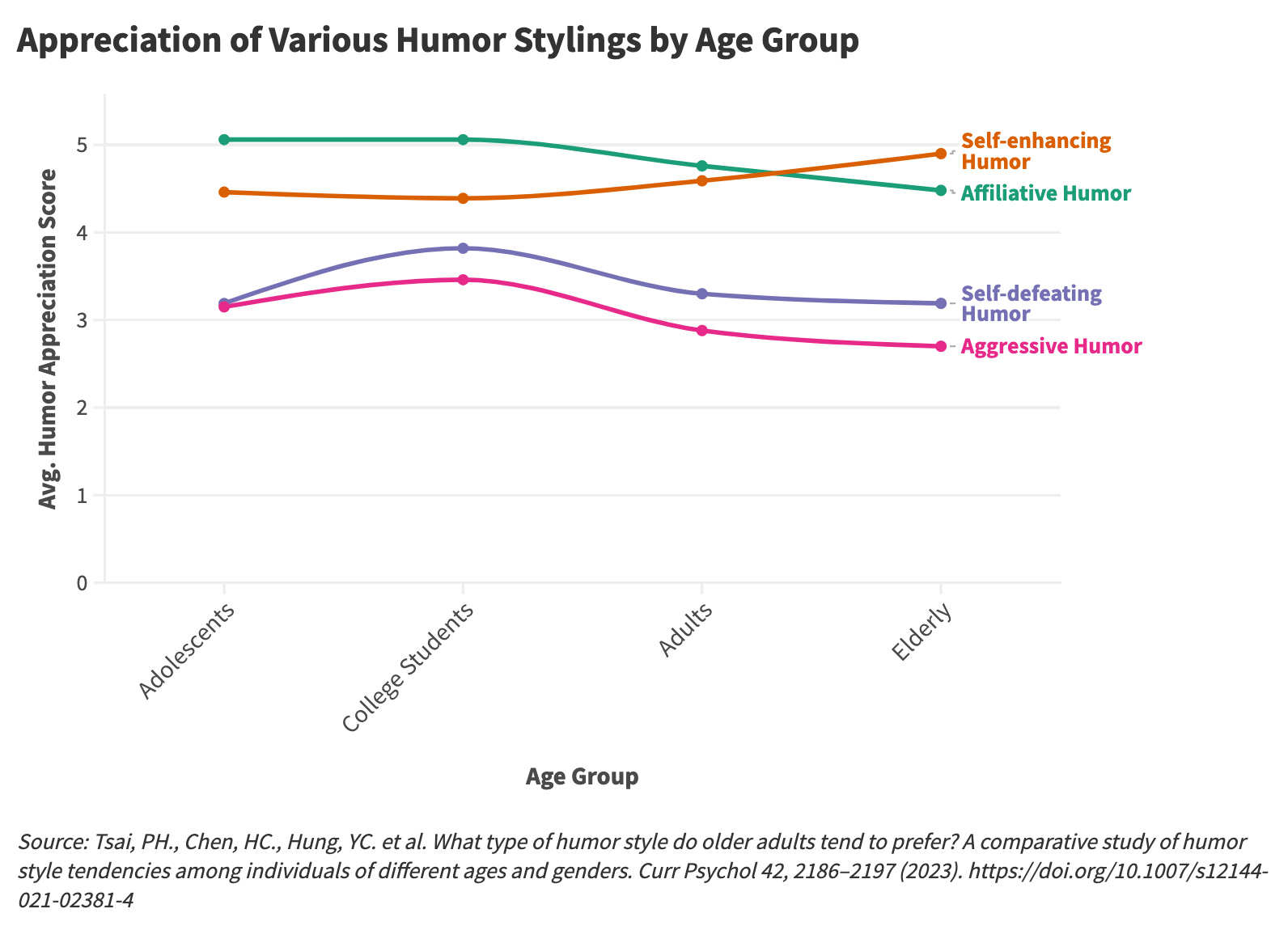
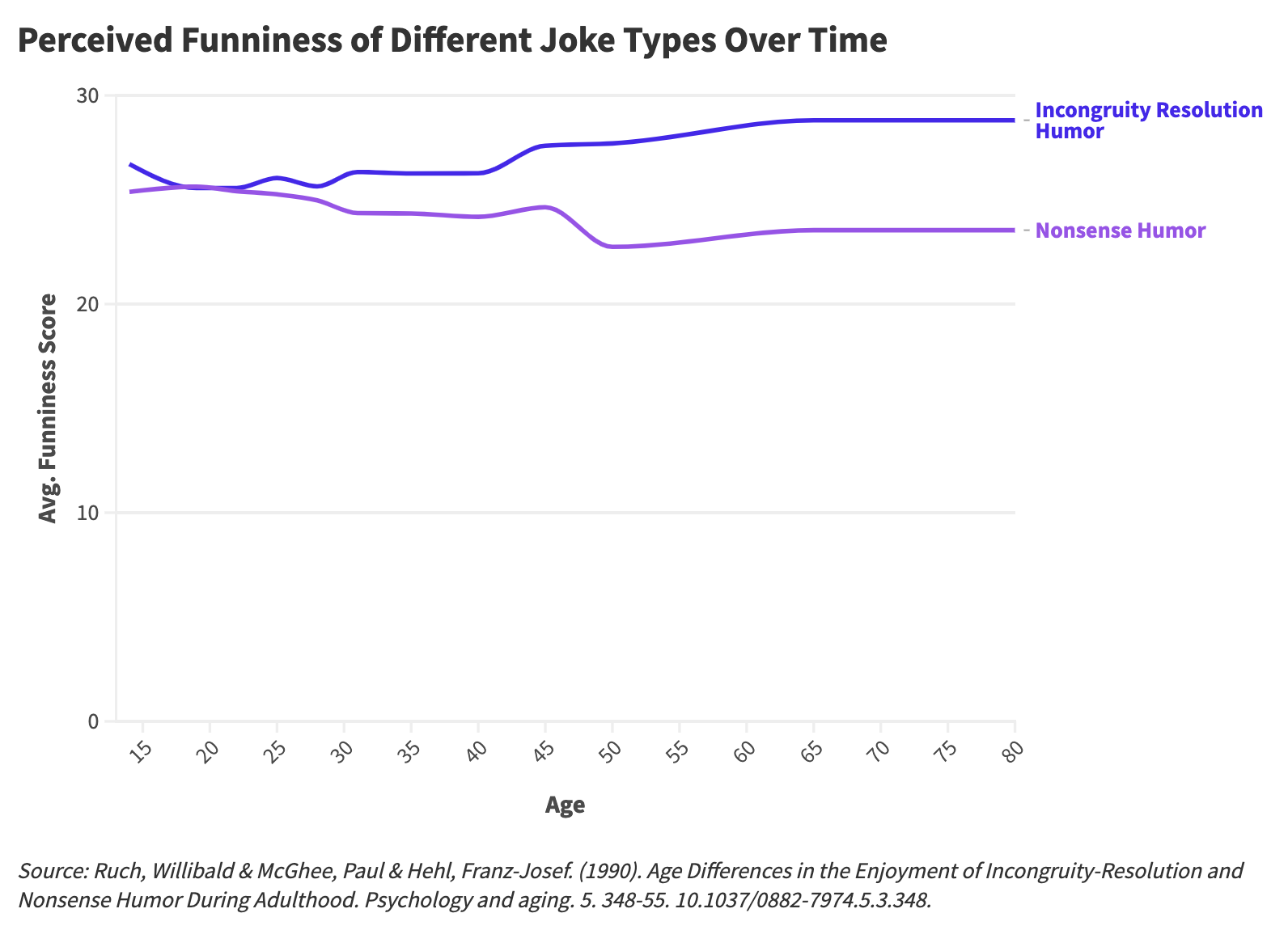
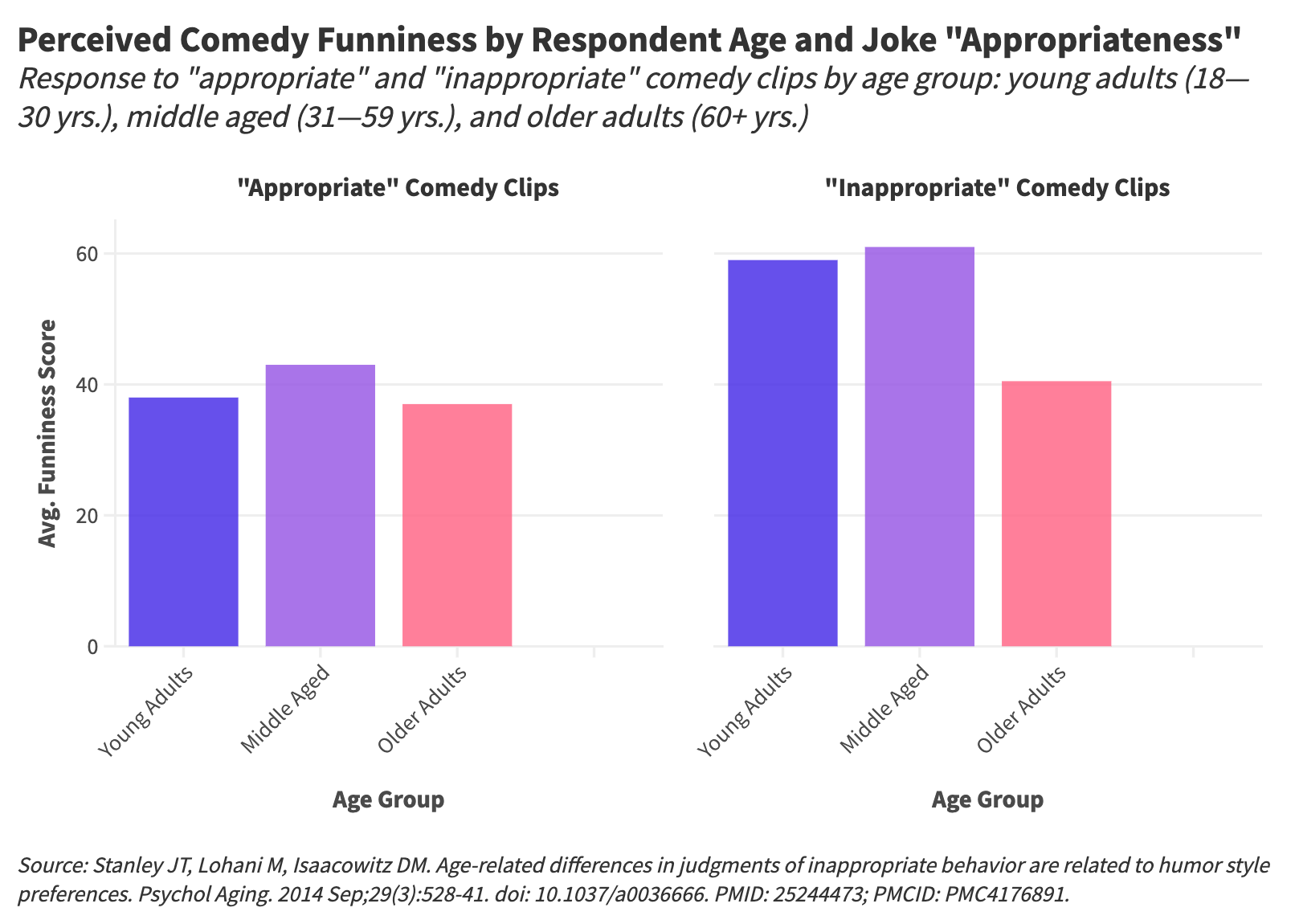
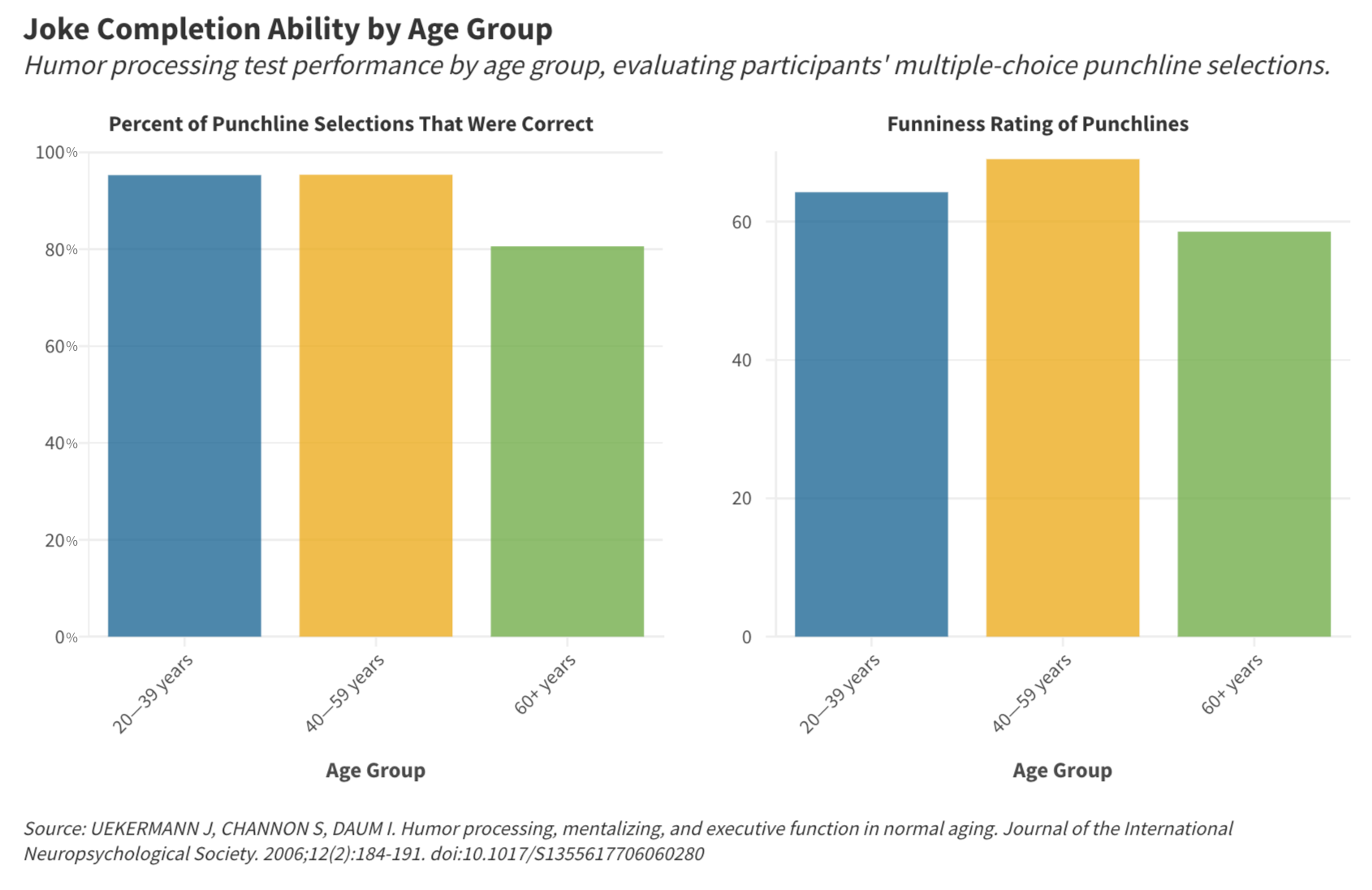
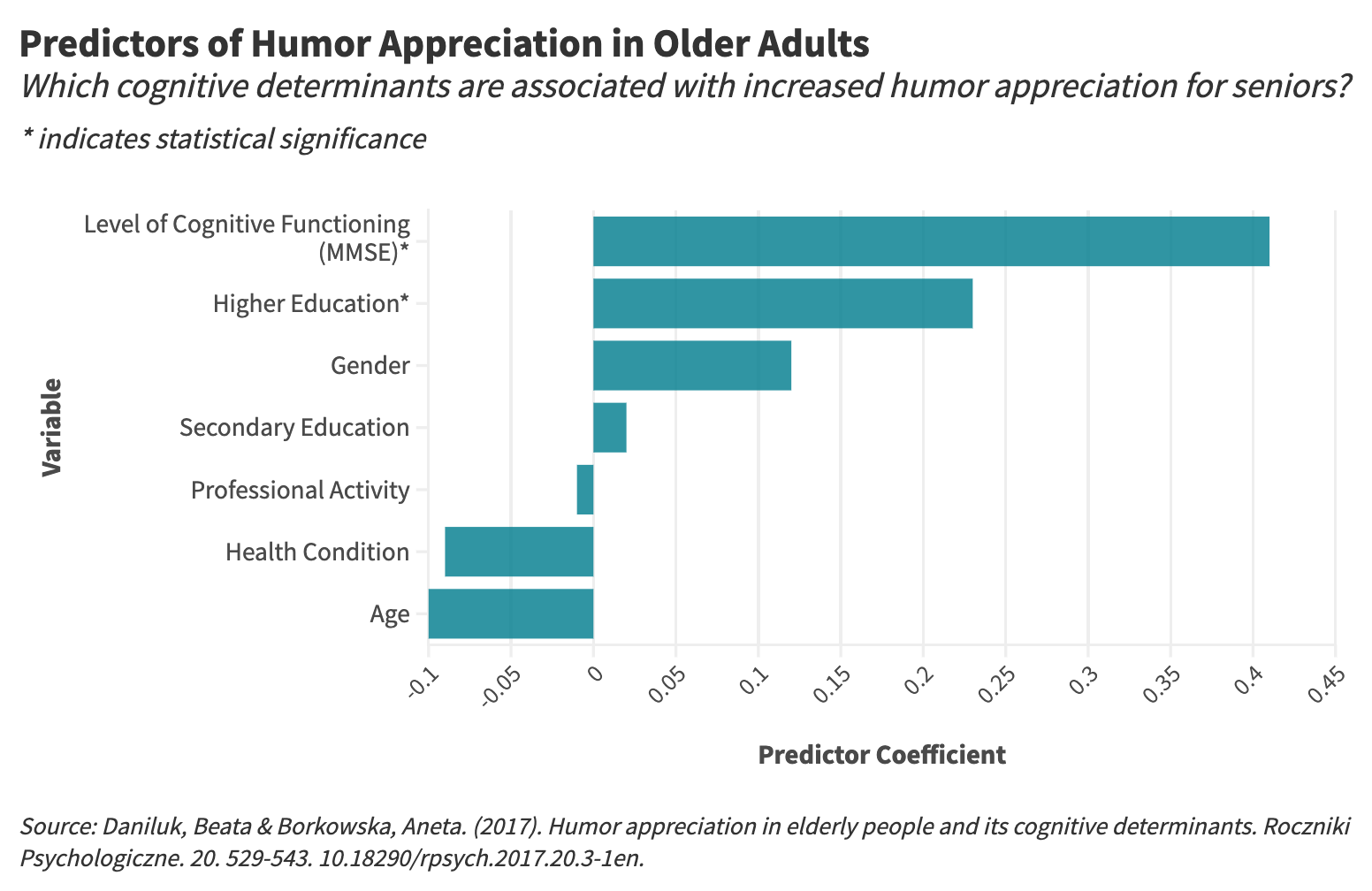
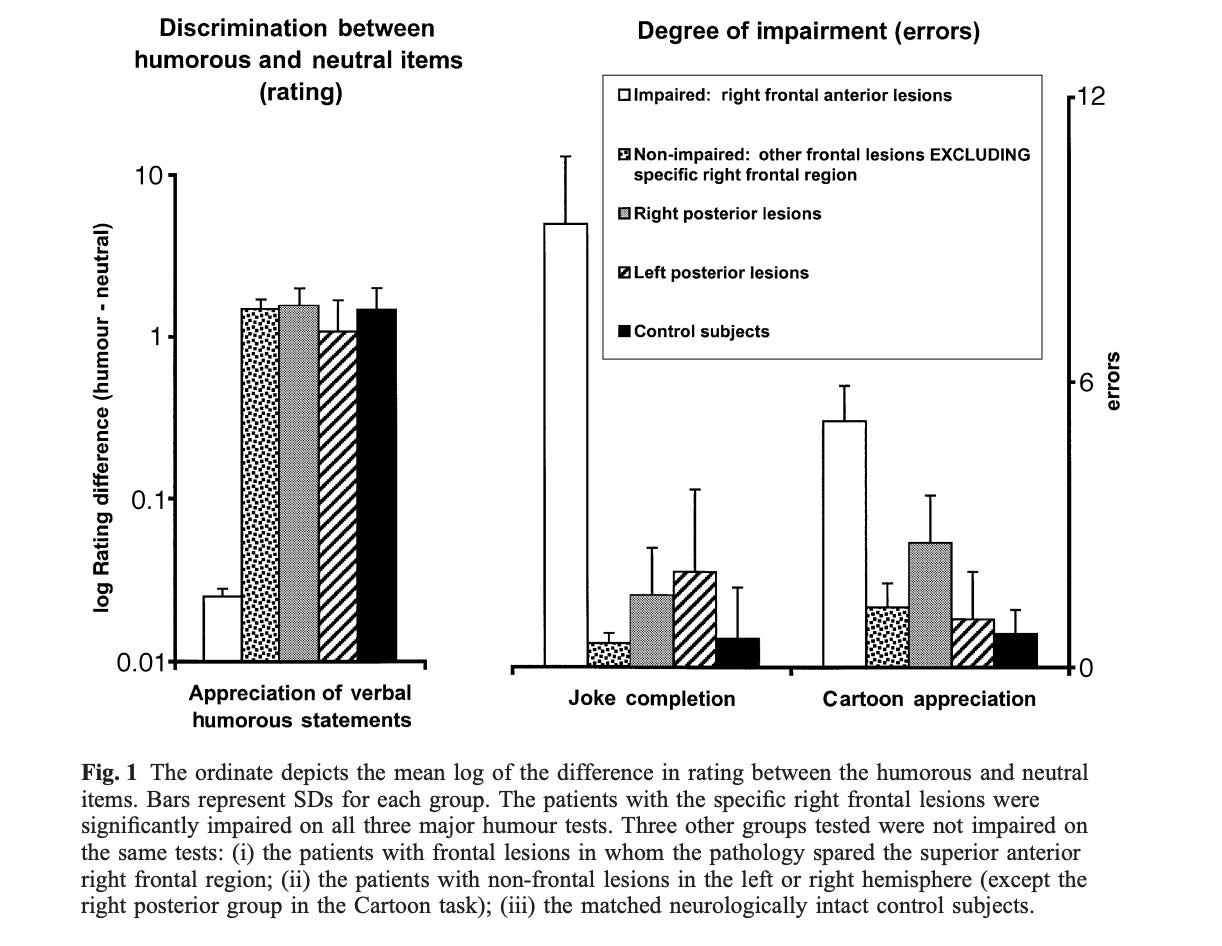
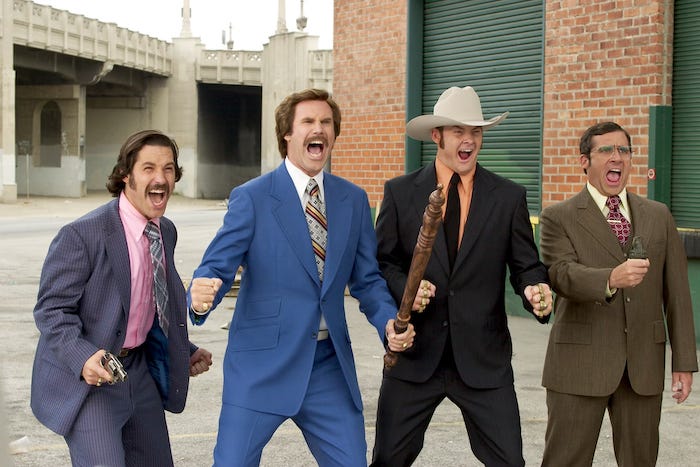
No comments:
Post a Comment